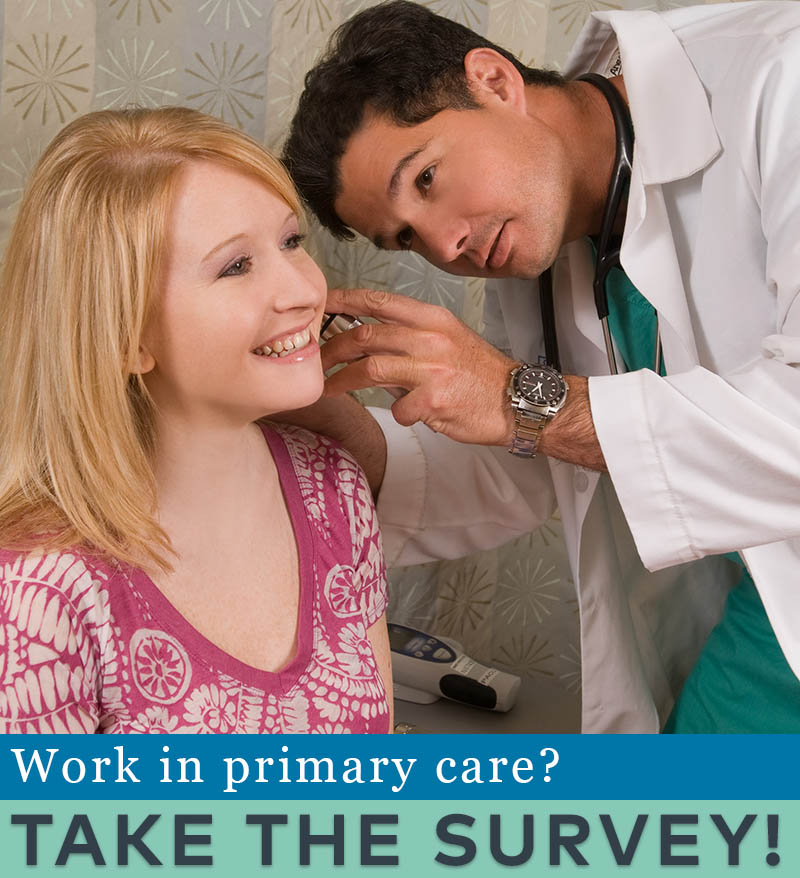You are looking at an archived version of our site. Please visit thepcc.org for a fresh, new experience!
You are here: Array » New Primary Care Surve ...
New Primary Care Survey Shows Practices in Trouble Now and in the Future
WASHINGTON, May 21, 2020—In a new survey of primary care clinicians and their response to the COVID-19 pandemic, conducted May 15-18, more than half (55%) fear they are unprepared for the next wave of the pandemic due to high stress among clinicians, limited access to testing and adequate PPE, and patient struggles with technology. Clinicians say their practices require a financial lifeline, with 53% desiring “payment of any kind at this point.” And clinicians say patients are continuing to delay or postpone chronic and preventive health concerns due to stay-at-home orders.
In its tenth consecutive week, the survey was conducted by The Larry A. Green Center in partnership with the Primary Care Collaborative (PCC).
“In this week’s survey, we see a growing concern among clinicians about preventive and chronic care that isn’t happening, either because patients are putting off anything but the most urgent health concerns during the pandemic or because some preventive and chronic care needs are not amenable to digital health platforms,” said Rebecca Etz, PhD, Co-Director of The Larry A. Green Center and Associate Professor of Family Medicine and Population Health at Virginia Commonwealth University. “Front-line clinicians are in a double bind: They can take care of their patients without sufficient payment and without sufficient personal protection from COVID-19, or they can abandon their patients. They choose to continue to serve, despite the hardships. It’s inspiring.”
The touted rapid shift to telehealth is also revealed in this week’s survey. For the past two months, survey data have shown that video visits were still slow to happen at many primary care practices, and (often unreimbursed) telephone visits were more common. But for the second week in a row, more clinicians (29%) reported using video for the majority of their visits as compared to telephone (25%).
Yet challenges to telehealth remain. Eighty-four percent of surveyed clinicians report “patients who struggle with virtual health (internet or computer trouble)” as a stress on their practice. And 18% point to denied billing for virtual/telehealth as a stress. Only 57% of respondents say that half or more of the care they provide is reimbursable.
“Congress and the administration need to provide immediate, targeted relief to primary care to stop the hemorrhaging and also address longer-term, system-wide financial issues that undervalue primary care,” said Ann Greiner, President and CEO of the Primary Care Collaborative. “Getting all practices PPE and testing is way overdue, as is moving primary care to a prospective payment system that is resourced adequately to truly meet patients’ medical, behavioral and other needs.”
This week’s survey results reflect input from 736 primary care physicians, nurse practitioners, and physician assistants. Responses came from 49 states. Respondents’ specialties were: family medicine (67%); pediatrics (7%); internal medicine (16%); geriatrics (4%); and other (7%). Respondents’ settings included: rural (26%); community health centers (18%); schools or offices (17%). 34% of practices had 1-3 clinicians; 26% had 4-9 clinicians. 35% were self-owned; 19% were independent and part of a larger group; 40% were owned by a health system. 9% were from convenience settings (retail, walk-in, urgent); and 3% were defined as direct primary care or membership-based practice; 7% were government-owned.
Visit PCC’s website for:
- Executive summary of the survey
- Full details of the survey
- Infographic
Experts are available to provide insight and comment on the survey:
- Ann Greiner, MCP, President & Chief Executive Officer, Primary Care Collaborative
- Rebecca S. Etz, PhD, Co-Director of The Larry A. Green Center and Associate Professor of Family Medicine and Population Health at Virginia Commonwealth University
If you would like to speak with either of these experts, please contact:
Stephen Padre
Communications Manager, Primary Care Collaborative
spadre@thepcc.org
202-417-3911
This survey is conducted weekly with an aim to measure the impact of COVID-19 on their primary care practices. Results are reported on the websites of the Larry A. Green Center and PCC.

Are you a physician, nurse practitioner, or PA working in primary care?
Help PCC and the Larry A. Green Center track how your practice is responding to the COVID-19 outbreak by completing the Green Center's occasional survey.
The regular surveys are no longer being conducted.
COVID-19 Updates
May 9, 2022 | Primary Care Collaborative
April 19, 2022 | Primary Care Collaborative
April 19, 2022 | Primary Care Collaborative
March 7, 2022 | STAT
February 27, 2022
- 1 of 39
- next ›
Recent News
August 16, 2024
August 12, 2024
July 16, 2024
May webinar highlights: “The Commercial Market: Alternative Payment Models for Primary Care” Nate Murray explains w… https://t.co/KX9Wi2w6oY —
2 years 8 months ago
@CMSinnovates’ primary care strategy is rooted in a 2021 @theNASEM’s report which called #primarycare “foundational… https://t.co/glbPxvCysg —
2 years 8 months ago
@CMSinnovates has a new #primarycare strategy, envisioning “ACO-based primary care model tests that may focus on pr… https://t.co/aJGF1z411l —
2 years 8 months ago
- Page 1
- ››
Secondary menu
Copyright © 2024 Primary Care Collaborative



